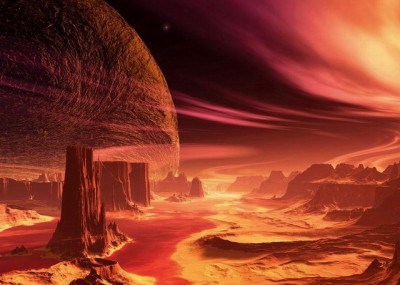|
By Nate Posey
I like to imagine myself as being something of a science fiction connoisseur. As such, I was quite shocked and more than a little embarrassed to discover that until a few months ago I had scarcely even heard of what has been dubbed the single greatest science fiction book ever written: the Hugo-winning, Nebula-winning, all-time best-selling Dune by Frank Herbert. The novel details the ascent of young Paul Atreides, heir to the ducal fief of the desert planet Arrakis, who marshals the native populace against his father’s usurpers to reclaim his rightful inheritance. Herbert is a masterful storyteller, and the universe of Dune is simply unparalleled in its richness and authenticity. Nevertheless, several of the story elements seemed somewhat out of place in this alleged masterpiece of science fiction. Paul’s mother, the Lady Jessica, is a Bene Gesserit witch, a member of the galaxy-spanning order of mystics whose prophecies and powers of mental suggestion play a key role in Paul’s development from a young princeling into the legendary Muad’Dib, the messiah of Arrakis. Although the mystical elements in Dune never truly cross into the overtly magical realm of sword-and-sorcery fantasy, many of the characters’ telepathic interactions are nevertheless suggestive of supernatural forces. Most peculiar of all, however, is the political order in the universe of Dune; the galaxy is held in a tenuous balance of power between the Padishah Emperor and the various Lords of the Great Houses who have parceled up the various star systems into feudal estates. Such medieval politics seems glaringly anachronistic in a futurescape replete with shield generators, laser rifles, and superluminal spacecraft. To be sure, Herbert was neither the first nor the last to invoke such a topsy-turvy alternate universe. Isaac Asimov’s Foundation series details the emergence of a second galactic empire from among the thousands of fractious “barbarian” kingdoms which sprang up after the collapse of the first, and George Lucas’ Jedi Knights would be more at home in Camelot than in a galactic republic. Such works often straddle the line between the genres of science fiction and fantasy, blending arcane tropes into an otherwise technologically advanced society. Unlike many works of so-called “hard” science fiction, which often explore the inevitable complications arising from the development of new technologies, the fantasy-esque works allow for the retelling of simpler and more familiar arcs: the conflict between order and chaos, between good and evil, etc. Such works represent escapism at its finest, where the classical struggles of heroes can play out on the most spectacular of stages. The enduring appeal of such works may very well be due more to their traditional elements of fantasy rather than to their science fiction motifs. Today’s readers vastly prefer the genre of fantasy to that of science fiction, with the former outselling the latter by as much as 10 to 1 in the domestic market. Author Graham Storrs suggests that this shift in popular taste may be the result of a general disillusionment with the once lofty promises of “scientism” (excessive belief in the power of scientific knowledge and techniques), noting that many of the developments which dazzled spectators with untold possibilities in the twentieth century (spaceflight, nuclear power, etc.) have fallen flat in the twenty-first. He writes that: These days scientism is a minority religion, science is seen as a golden calf to be cast down, and the scientists we once placed on pedestals are fallen idols. We’re disappointed and disillusioned. We didn’t get answers. We didn’t get squat except Windows 7, genetically modified corn, and electronic trading. Personally, I am still optimistic about the future of science fiction. Although most people have become rather jaded by the apparent trajectory of so-called progress (“The new iPhone 5 is 20% lighter than the last one, you say?”), history shows us that such trajectories are almost always misleading; no one ever really predicts the next big earth-shattering advance until it’s right on top of us. I am confident that the next few decades will offer us a vision of a future that is once more exciting enough to speculate about without writing in warriors, wizards, or (God forbid) vampires. Who knows? The future of 2050 might just well resemble the future of 1960 more than the future of 2010.
0 Comments
Leave a Reply. |
Categories
All
Archives
April 2024
|

